Update Oct. 23, 2023: The Millikan counselors availability have been updated according to Ms. Mashburn’s email to Millikan families on the times counselors are able to meet with students, which reads:
Millikan Families,
We hope this message finds you well. We wanted to take a moment to let you know about the availability of our school counselors. Our hours have changed. Counselor hours are from 8:00 am – 4:30 pm. Counselors will be available to students for drop-in services on the following days during nutrition and lunch:
Monday- Dr. Danks (MBA 10-12th Grade) and Mr. Temple (COMPASS 10-12th Grade)
Tuesday – Mrs. De la Paz (PEACE 10-12th Grade) and Mrs. Santana (COMPASS and PEACE 9th Grade)
Wednesday – Mrs. Mashburn (Head Counselor)
Thursday – Mrs. Barragan (QUEST 10-12th Grade) and Ms. Hamlet (MBA, QUEST and SEGA 9th Grade)
Friday – Mr. Booth (SEGA 10-12th Grade)
The beginning of the school year can be hectic, and Millikan counselors felt it in full force.
According to Ms. Mashburn, the head counselor at Millikan, “The American School Counseling Association recommends 250 students per counselor. Here at Millikan, we have 500 per counselor.” With this counselor-to-student ratio, counselors are being overworked and students are frustrated. The student body needs to keep its patience.
Many students have tried to meet with counselors but have had no luck.
“I’ve tried going to Mr. Booth because I have classes I don’t want, but he was too busy,” stated Tyler Reading, SEGA senior. Reading tried to meet with his counselor at the office, but “it was really busy. There were a bunch of kids, younger kids, in line.”
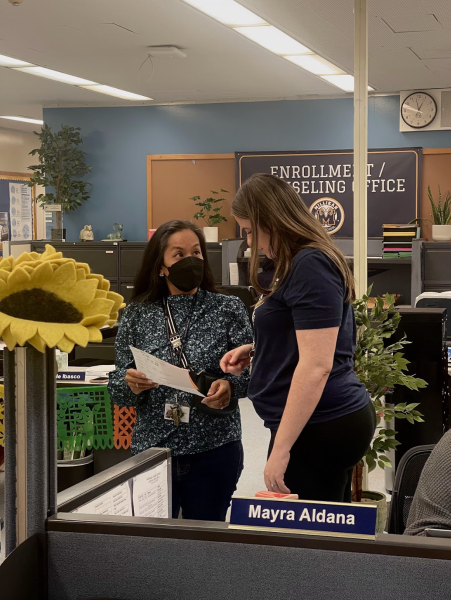
It can be frustrating to wait, but getting upset with the counselors won’t make things run any faster. Students need to remember that counselors have more than student meetings to deal with.
“What a school counselor’s job entails is three things that encompass everything,” stated Ms. Barragan, the QUEST 10th-12th grade counselor. “We do academic counseling, we do social and emotional counseling, and we do college and career, or postsecondary, counseling.”
These “big three” fields that counselors work with are very broad and add a lot of work to the counselors’ plate. Since so many people need to meet with the very understaffed counselors, Millikan’s counseling staff should ideally be doubled in order to match the American School Counseling Association’s standards.
This would give Millikan a better student-to-counselor ratio and allow the counseling staff to give more attention to all their tasks without worrying about overflowing student requests. For now, however, students who do need to meet with their counselors just have to keep trying to contact them.
“I am open to students meeting with me in a variety of ways,” stated Dr. Danks, the MBA 10th-12th grade counselor. Dr. Danks has office hours before and after school, during nutrition and lunch, and is also available for after-school appointments.
Mrs. Santana, the PEACE and COMPASS 9th grade counselor, shared, “I don’t deal a lot with appointments, I just ask my kids to come see me. I just specify what a good time is.”
Ms. Barragan similarly said, “I’m perfectly fine with people just popping in.”
Students who are unable to pop in can always email their counselors in order to confirm a good meeting time or even just to ask questions. The counselors are here to help students, just remember to be a little patient.
Some inquiries can also be answered without seeing a counselor, so students can look through the Millikan and LBUSD websites to see if their problem can be addressed before meeting with them. This Rams Resources Flyer also has many useful links to both academic and personal resources.







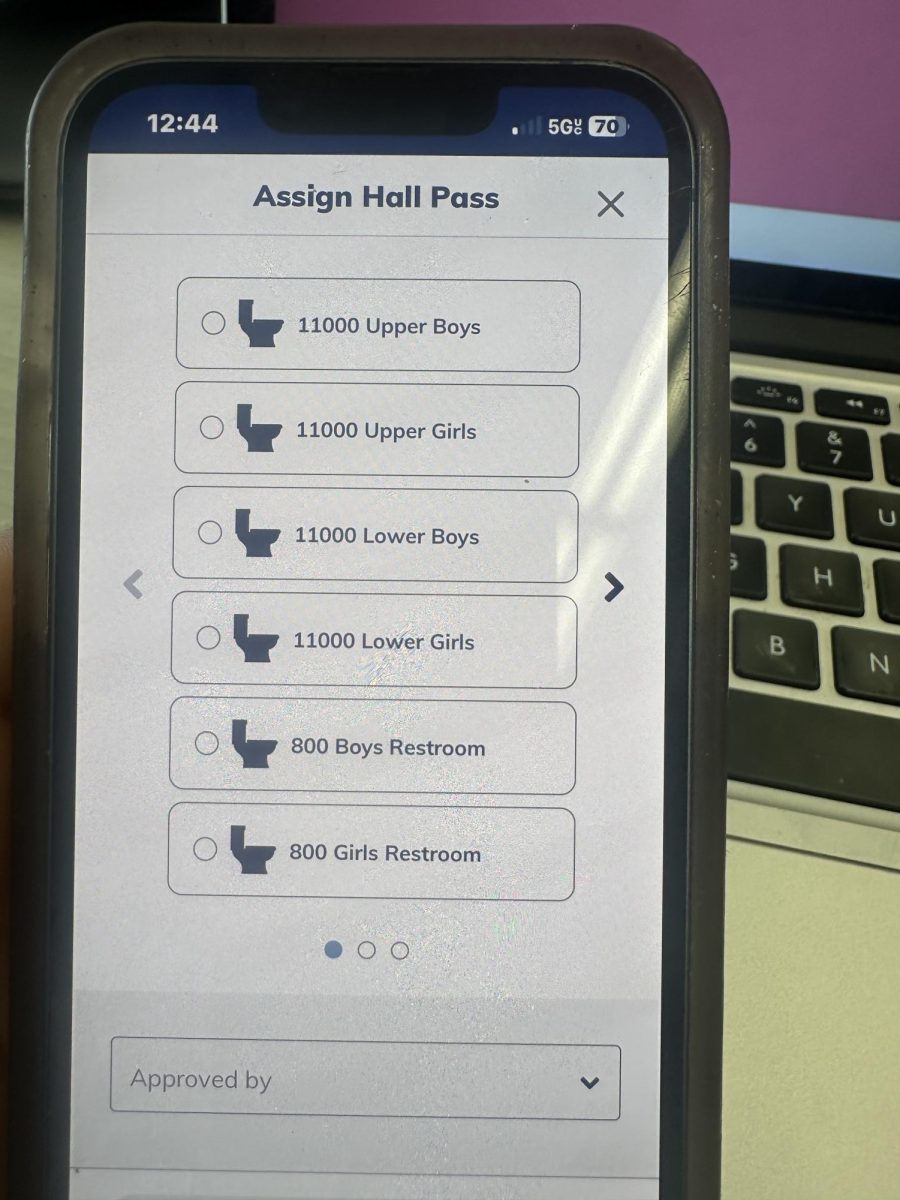




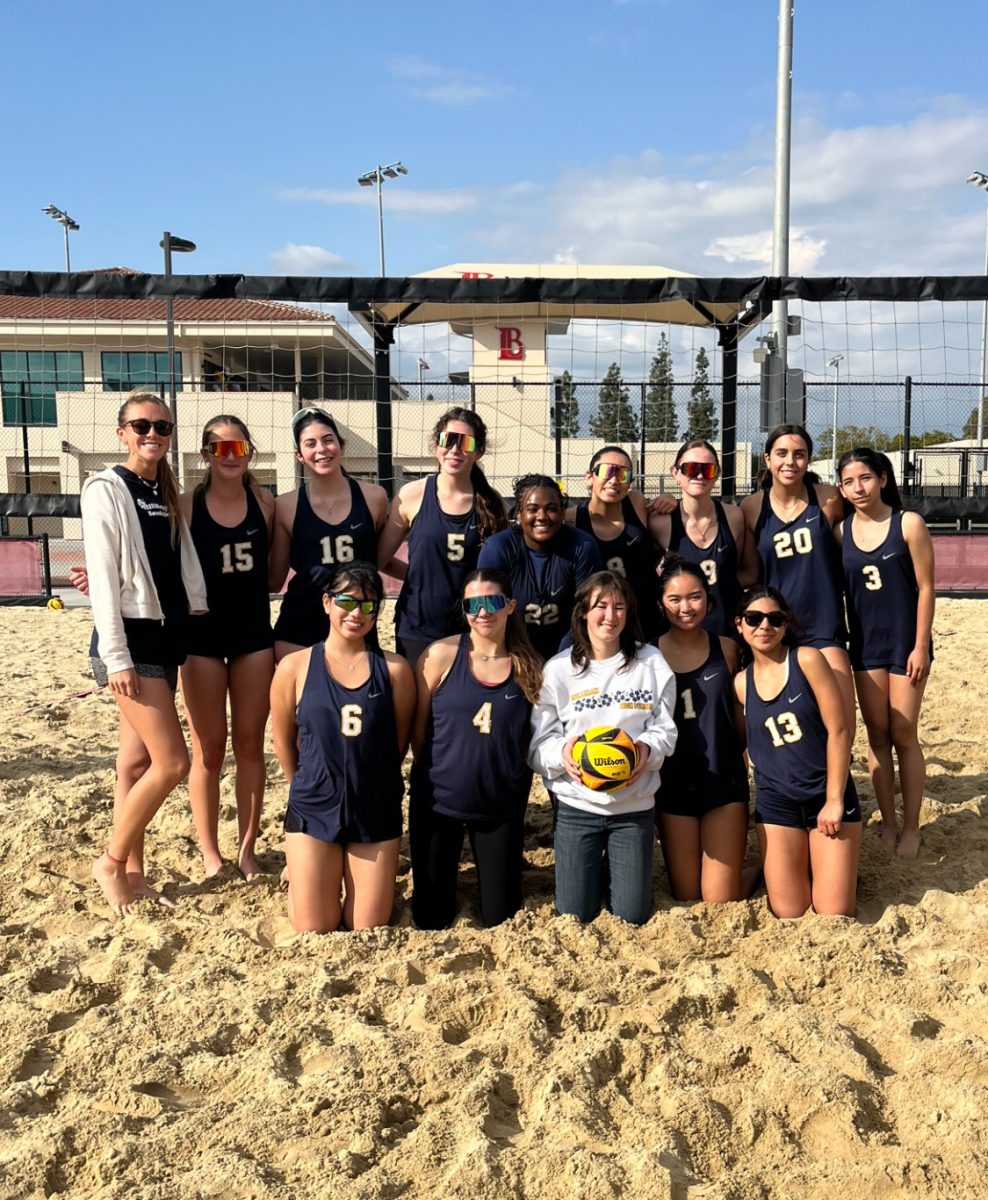







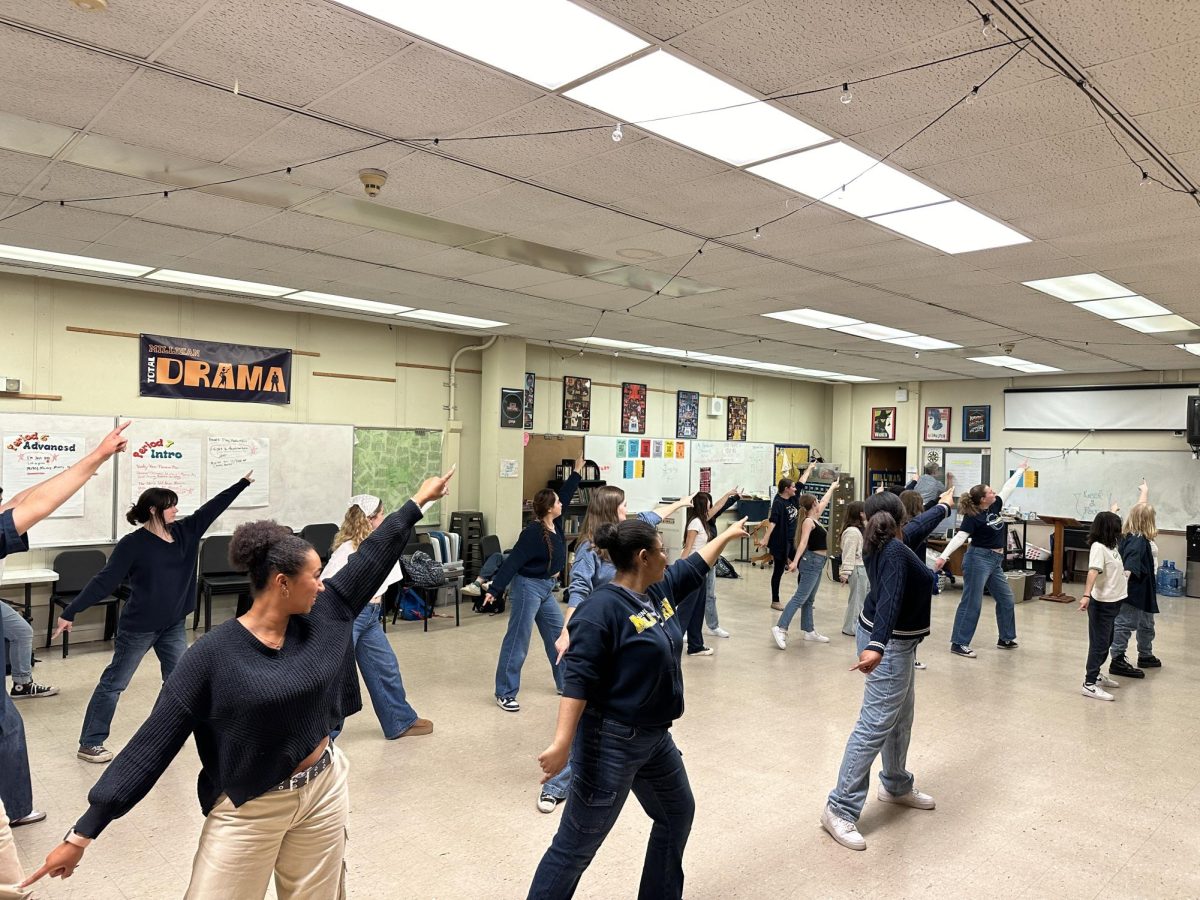









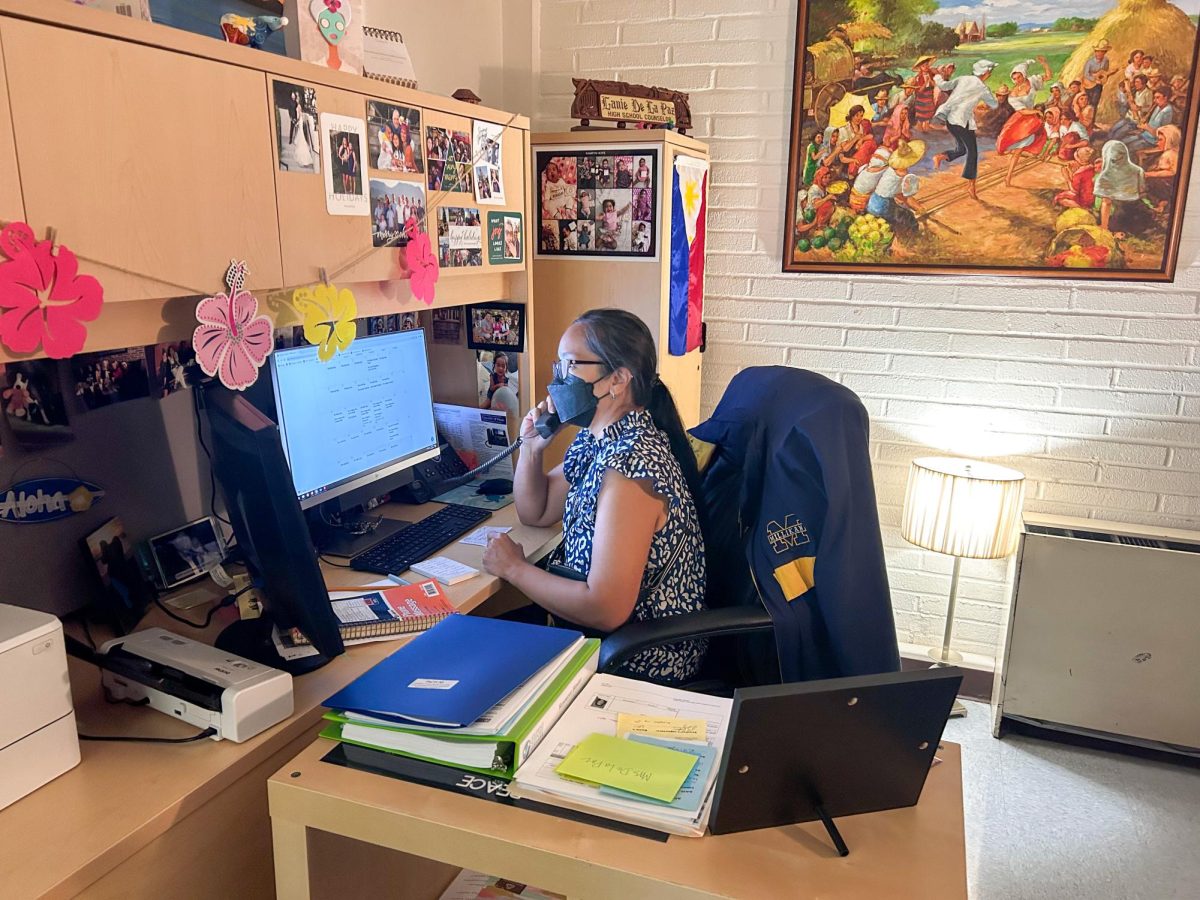







Lucy Green • Nov 9, 2023 at 11:43 am
This article did an excellent job at conveying the struggles that the counselors face but in turn, acknowledging student frustration. By beginning with statistics from The American School Counseling Association, I was immediately engaged in the article and was able to understand the greater issue of the high student-counselor ratio. I also found the inclusion of real interviews with students and counselors to be a great addition, as this provided credible and relatable evidence but also developed multiple perspectives on the issue.
I think something to add would be a further article to address Millikan’s problem of being understaffed, as it would explore this issue and may promote further mental health support on campus for students and take the stress off of counselors.
Overall, I really appreciate this article for addressing a relevant and relatable topic that has plagued students and our counseling department, especially with the start of the school year. As someone who has struggled with reaching out to my counselor, it is helpful to know that others are going through the same thing. This article was enjoyable, well-written, informative, engaging, and credible.
Hayley Skibinski • Nov 3, 2023 at 8:06 am
I really enjoyed this article, as it imposed a very real problem within our school
system. It’s apparent counselors have a lot on their plate, and especially reading how they also
have other matters, other than academic counseling, to attend to such as emotional counseling
and postsecondary counseling.
This makes me concerned that many people won’t be able to get the help they need or
their academic problems. My little brother needed to fix his classes before, so we went to his
counselor and he had trouble talking to them because they were just way too busy taking in calls
from others who needed assistance. This gives me empathy for counselors though, because it
must be very difficult being of aid to almost 500 students every school year.
Maybe getting help from other resources like what Allyson wrote about would be very
beneficial to counselors, as it would be able to lift a heavy load off their shoulders. Overall
though, the school body is just very understaffed, and it will need to take effort into the students
to be empathetic towards the counselors who are doing the best they can for their students.
Again, I thank Allyson for this amazing article. It was very intriguing and I learned quite a bit
from it.
Aila Kubota • Oct 31, 2023 at 3:58 pm
This is a very well-written article that explains both the Millikan High School’s student frustrations and the overload of work their counselors have to deal with on a day-to-day basis. This article provides both the student’s and counselor’s points of view to allow for a better understanding of each side and to clear up any miscommunication that could be faced. Throughout the article, Richter states how the students at Millikan High School feel a sense of frustration due to the inability to meet with their counselors to discuss important issues such as the classes they are taking, or their schedule. In addition, Richter efficiently states that the counselors are unable to meet with their students due to the immense student-to-counselor ratio, along with the multitude of responsibilities the counselors have. By providing both sides of concern, Richter is able to effectively provide a reasonable solution to further prevent any frustration there may be because she explains that frustration does not solve any problems but only makes them worse. Furthermore, at the beginning of the article, Richter includes a useful list of the office hours of each counselor to offer the student readers the specific times and days their counselor is available in an attempt to lessen the student’s worry and stress on figuring out when is a good time. To conclude, this is a very well-organized article that allows readers to clearly understand the argument being stated as well as provides a variety of logos to further emphasize the struggle of both sides.
Savannah Martinez • Oct 30, 2023 at 12:43 pm
Dear Corydon Editor,
On October 11, 2023, Allyson Richter wrote an article titled “Can You Meet With Your Counselor?”. This article goes into depth about the difficulty that students have when trying to meet with their respective counselor. Richter uses both the counselor and students perspective about the difficulties. This article is eye-opening for students to understand why meeting with counselors is difficult at the beginning of the school year. It highlights both sides of the frustration white also posts important information of the desired meeting times with counselors.
Although this article does contain various interviews, I suggest that Richter add more interviews since there are different counselors for every pathway and grade level since Richter only included four interviews. I feel that this suggestion will enhance Richter’s writing because it will provide different experiences with different counselors.
A question that I have is what exactly is the job of the head counselor Mrs. Mashborn. Although I know that she is overseeing all the counselors performances, how does Mrs. Mashborn interact with the students? Are all students, from all pathways, and grades allowed to meet with her or is it better to meet with their respective counselors. This will be effective to Richter’s writing by making students feel that they have more options than that one counselor.
Overall, Richter’s piece is very effective and highlights the difficulties of meeting with one’s counselor at the beginning of the year.
Sincerely,
Savannah Martinez
Sofia Matin • Oct 25, 2023 at 10:49 am
October 23, 2023
Dear Corydon Editor,
On October 11, 2023, Allison Richter wrote an article titled “Can You Meet With Your
Counselor?”. It is incredibly well-written and eye-opening. I enjoyed reading it, and found it to
be a reasonable argument. However, I found the solution to the adressed problem, the
unavailability of counselors, to be slightly unreasonable. Richter wrote multiple times about a
need for patience from the student’s side, and presented trying repeatedly to get an appointment
as a solution. I found this to be slightly odd, as Richter was arguing about a need for a greater
number of or increased availability of counselors but still presented a student-oriented solution
(Nullyfying a need for fast change). While stressing patience is beneficial in regards to the
counselors, it presents the school with excuses to avoid fixing our very real issue. I understand
the orgin of Richter’s writing choices, and agree with the concept she is bringing up. I simply
believe that the solution provided multiple times may not be substantial enough to such a
prominent issue.
I found the last 5 paragraphs to be well-placed and helpful. It provides students with a
way to receive help if counseling is needed, and gives a directory to let students know other
means of assistance are available. While my earlier lament could still apply, Richter’s writing is
formatted in a way that provides unproblematic and easily accessible help. I appreciate this
inclusion to the article, and am impressed with Richter’s final approach to the argument.
Finally, I would like to draw attention to the tasks accompanying those of normal
counseling duties. While Richter does not include this point, schools have recently begun adding
more work to counselor’s job descriptions that aren’t focused on helping students. This means
that the school counselors aren’t provided with enough time to provide one-on-one assistance to
the students that need help. Especially after the unionization of school counselors in California, a
greater workload with tasks unrelated to counseling has been seen. This accompanies the issue of
understaffed offices Richter points out, and may provide more background information and
evidence to the article. I greatly enjoyed the article, and hope to see more of Richter’s writing in
the future.
Sincerely,
Sofia Matin
Eileen Vuong • Oct 24, 2023 at 11:49 am
This article effectively provides a commentary regarding the availability of Millikan counselors. It addresses both perspectives of counselors and students where Richter provides quotes from both voices. This allows Richter to show concerns and limitations of both perspectives, as students are unable to reach their counselors and counselors are under heavy workload. Additionally, the diction and format of this article is precise and well structured, so it’s easy to read and follow. Richter does an excellent job of emphasizing patience for students to understand counselors’ busy schedules. Through this article, students can recognize how to approach their counselors in order to effectively communicate with them. However, because the beginning of the school year is always hectic for counselors, one important detail to address is the amount of time students have to change their schedule. Students only have the first 20 days of school to change a schedule, so there will be a sense of urgency that students want their schedules to be changed as soon as possible. Because of that period, Richter brings a significant point of how Millikan counselors are considered to be understaffed according to the American School Counseling Association. Therefore, this article uses rhetorical techniques to further elaborate both perspectives of counselors and students which provides an effective commentary.
Zoe Huynh • Oct 24, 2023 at 11:48 am
This article is easy to relate to for students that read it. A lot of people try to meet with their counselor with no luck, and may be upset, like the article stated. I believe the article helps to clear up any misunderstandings there may be. Richter uses elements like logos in the article through statements from counselors. This helps the audience to understand the situation from a different perspective, not just their own. In the article, it states that counselors have around 500 students, so they are very busy. Taking this into account, students should be understanding and patient if they ever need to contact their counselor. I think that it was helpful that Richter included when counselors are available. The article includes specific times and days when you can meet certain counselors. It makes it convenient for students to possibly find or contact them if needed. Overall, “Can You Meet with Your Counselor?” is well written and very helpful to those that may need to speak with their counselor.
Simone Jackson • Oct 24, 2023 at 10:07 am
October 24, 2023
Dear Corydon Editor.
On October 24, 2023, Allyson Ritchter wrote an article titled “Can You Meet With Your Counselor?”. This article is a very well-written publication of commentary and advice for students who seek aid from their counselors. The article provides a counselor duty schedule helpful to students trying to find their counselors for help. The article also starts with contextualizing the overwhelming ratio of students per counselor. The article offered commentary relevant to a struggle countless students struggle with at the beginning of the year. The use of a student quote provides considerable perspective on how difficult many students find meeting with their counselor to discuss their concerns about their schedule. An additional detail the author could have added would be that students have a time restraint to change things like their schedule, so as to better understand the frustration when unable to meet with a counselor. The article also offered a quote from the Quest counselor Ms. Barragan regarding the three elements of student care a counselor is responsible for. The elements were academic, emotional, and career counseling and as these are a very large range of problems counselors are expected to provide knowledgeable guidance on. The perspectives of both the student and the counselor provides credible testimony to how the number of counselors needs to be increased for the improvement of our school community.
Sincerely,
Simone Jackson
Erica Torres • Oct 23, 2023 at 8:47 pm
October 23, 2023
Dear Corydon Editor,
On October 11, 2023, Allyson Richter wrote an article titled “Can You Meet With Your Counselor?”. This article took focus on the busy schedules of the counselors of the Millikan Pathways. It is very well written and did a great job of explaining how the counselors have a lot of work on their plate and it can be hectic for them to deal with all the students they are incharge of. It can be frustrating for students when they do not feel heard or can’t seem to fix their issue that can be a simple task in their minds, but Richter explains how frustration doesn’t solve any issues. She did a great job of emphasizing how patients are necessary and why it is.
Richter states that counselors have 3 jobs they focus on being “‘academic counseling,we do social and emotional counseling, and we do college and career, or post secondary counseling, counseling”. This use of logos is nice of the compassion of students for the hard working counselors. As the voice of a student, the use from the counselor them fall under allows for a better understanding of their needs. For this reason, it would be beneficial to add quotation from interview with all counselors about their preferences about meeting times with students. Finally, parents also tend to get involved with certain concerns, and may want to speak to their childs counselors. Is there meeting times good for both kids and parents?
Ultimately, Richter did a good job of writing about the counselors and both the voice of students and there necessities. However there can be room for improvement with the use of voices from all councelors. Great article, it was great to hear a wide variety of voices!
Sincerely,
Erica Torres